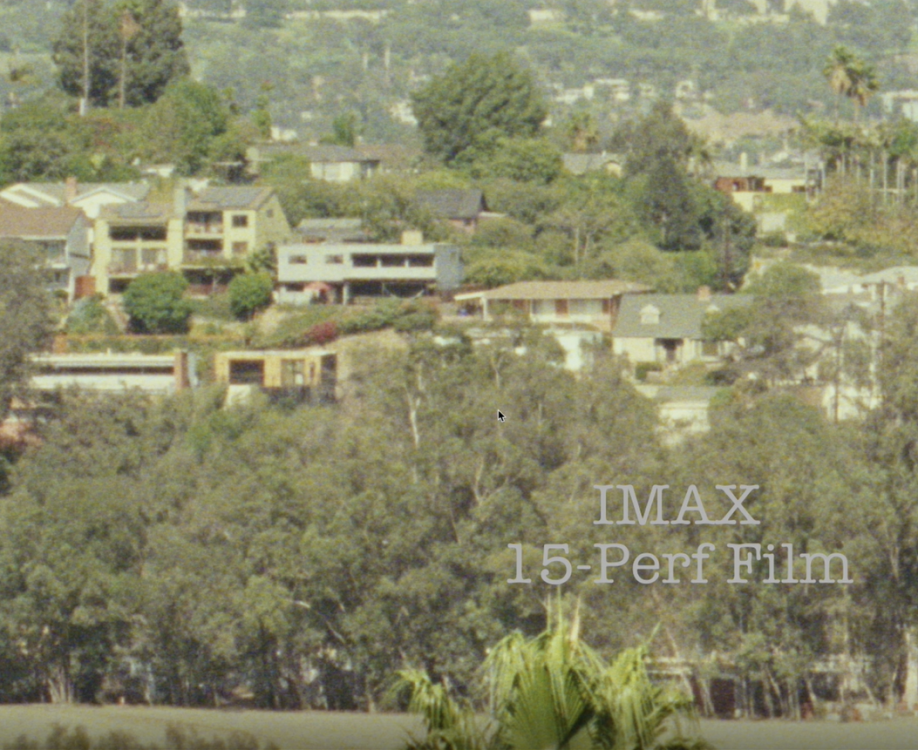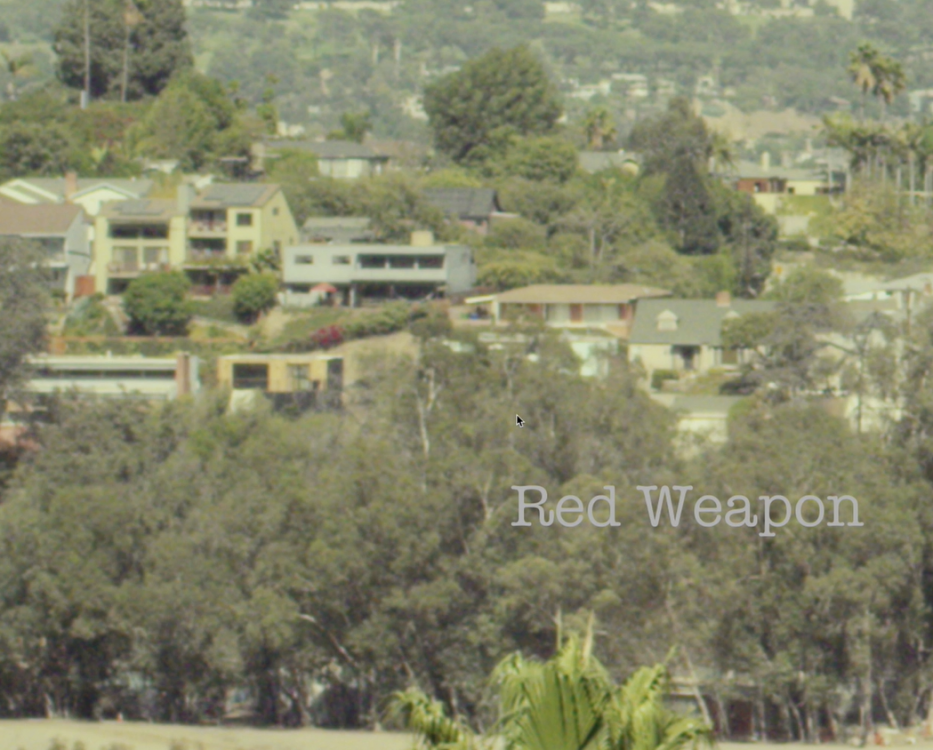-
Posts
9,966 -
Joined
-
Last visited
-
Days Won
4
Everything posted by Chen G.
-
I like sentimentality in movies.
-
Yeah, its exhausting in that way. Inception had more breathing room. But Tenet is still fun in its own way.
-
Maybe tedium is a bit harsh, but I've always found Interstellar a bit too long and slow. The Dark Knight Rises (which I like a lot) also wasn't exactly terse. But I will agree Interstellar had a heart that this film doesn't. It was also "long and slow" in a different way to this film: Tenet is actually pushing its plot forward quite rapidly (to the point of actually feeling choppy at times), it just has A LOT of plot and so it takes a long while and feels quite laborious. It doesn't do a film like this favours.
-
Seen it. Its fun, but more than a little bit confusing and certainly lacking in humanity. It works early on when its just Washington and Pattison. When Elizabeth Debicki comes into the frame as a melancholy, estranged wife of the villain, it starts feeling hollow because we're clearly supposed to feel for her, and yet it took nearly the entire movie before I realized I didn't catch her character's name. But then, I wasn't feeling the humanity in Inception, either, and that movie worked well enough just as spectacle, and in a way that's what's happening here, too. I would say this is certainly a lesser film by dint of being more laborious, but its still fun enough for the most part. In spite of its size, I daresay its not Nolan's most impressive spectacle. His crashing of a 747 sounds impressive, but didn't come off that mind-blowing on film: it looked like the aircraft gently taxi-d into a building. The opening of The Dark Knight Rises did more in that regard. So, basically its Inception with some of the tedium of Interstellar. To pick up on something @publicist said about this being akin to a Bond film (which it totally is), I'd rather rewatch Skyfall or Casino Royale sooner than this. *** out of *****
-

The Lord Of The Rings General Discussion Thread
Chen G. replied to Faleel's topic in Tolkien Central
Jackson watched The Thin Red Line during preproduction, and was greatly taken with it. This sequence of shots definitely has a touch of Terrence Malick about it. -

What Is The Last Film You Watched? (Older Films)
Chen G. replied to Mr. Breathmask's topic in General Discussion
A 6.5K Bayer-pattern digital camera with a 65mm-sized sensor and optics. Should resolve around 5K. It was consistently sharper, cleaner and more resolute than the IMAX footage I’ve seen. The Dragon, which resolves even less and uses a significantly smaller sensor, also seemed to slightly outresolve IMAX on certain shots: In the shots below, the IMAX seems to (only slightly) outresolve the RED, before you take a closer look and realize that its not actually more resolute, just grainier. The RED has more picture information, and the Alexa has even more. You could argue that its the general impression of sharpness on the IMAX frame (especially when its moving) that counts, but you could easily replicate that with a grain filter, and you'd still get better results than actually shooting on IMAX. If one wants to shoot on film, more power to him. But the way Nolan props it up and makes a point out of it, its just an affectation. Heck, the effects work on Nolan's own films is done at ~5.4K, which sits with the level of fine detail these examples point towards, rather than towards the monsterous figures usually quoted for IMAX. And this is straight off of the negative, too. Nolan's films are contact printed. -

What Is The Last Film You Watched? (Older Films)
Chen G. replied to Mr. Breathmask's topic in General Discussion
IMAX is 15-perf... I've seen Alexa 65 footage outmatch IMAX photography (scanned off the negative) quite consistently, with a RED Dragon being around on-par with the IMAX footage, as well; and we're shooting in even bigger formats nowadays. -

What Is The Last Film You Watched? (Older Films)
Chen G. replied to Mr. Breathmask's topic in General Discussion
Back in 2007 when he started shooting on large-format there was a benefit to doing this. Nowadays its purely an afectation: the nostalgic traditionalist in Nolan that compells him to limit his palette. I've seen IMAX footage compared to top-end digital cameras down to a forensic level, and you'd be hard-pressed to tell the difference. That people here are comparing his work to "Instagram" and "iPhones" is pretty damning. For the record, I've enjoyed Nolan's films greatly until about Interstellar - which I still find more than a little bit tedious - and Dunkirk which as far I was concerned was completely devoid of character and entirely reliant on the huge screen for it to work. I think his Batman films, for instance, had more than enough character and were even quite moving at times. -

The Lord Of The Rings General Discussion Thread
Chen G. replied to Faleel's topic in Tolkien Central
I never put much thought to it either. You brought it up so I looked. Its the sort of thing that follows Vince Giligan's advice: "contrivance in storytelling is absolutely fine, if it screws the characters over." -

The Lord Of The Rings General Discussion Thread
Chen G. replied to Faleel's topic in Tolkien Central
And yet the mark is right under his collar bone: which appears to be well above the neckline of the vest. Which makes sense, it was made for Dwarves, after all... -

The Lord Of The Rings General Discussion Thread
Chen G. replied to Faleel's topic in Tolkien Central
In the film, she doesn’t sting him in the neck, but still above the neckline of the Mithril shirt. -

The Lord Of The Rings General Discussion Thread
Chen G. replied to Faleel's topic in Tolkien Central
The Mithril shirt has a V-neck for some reason... -

The Lord Of The Rings General Discussion Thread
Chen G. replied to Faleel's topic in Tolkien Central
Yes. It gives a nice depth to the shot. -

What Is The Last Film You Watched? (2020 films)
Chen G. replied to Matt C's topic in General Discussion
Well, it sure looks like it. Yeah, that's the general tone of the reviews, too. -

The Lord Of The Rings General Discussion Thread
Chen G. replied to Faleel's topic in Tolkien Central
I've watched the films with young cousins of mine, and that issue never came up. I think most will understand that An Unexpected Journey is done in a different, more heightened style, and that the greater reliance on magic is in keeping with that, and make peace with it. And like I said, there is some semblence of an in-universe explanation. Certainly, its a much better explanation than what we get for why Jedi are cremated in the prequel trilogy but vanish in the classics, and that seems to work for most, so... -

The Lord Of The Rings General Discussion Thread
Chen G. replied to Faleel's topic in Tolkien Central
We see "that approach completely dropped" a whole of one time, in a film with a palpably different sensibility, and over two films removed from the transition to The Lord of the Rings. In the interim, the Necromancer "is draining his life" from him, he loses his staff and ages sixty rather laborious years. At any rate, it was worth the supposed inconsistency just to have Gandalf let rip with magic for once. I thought it was cool, and sometimes that's what counts. And while its more magic than we're used to, at least its consistent in that Gandalf's magic is always to do with light and fire. By the way, the use of magic strikes me as a Guillermo Del Toro touch. Jackson doesn't like magic spells in movies. -

Howard Shore: Favourite non-middle-earth music track
Chen G. replied to Jurassic Shark's topic in General Discussion
I happen to think his work on The Silence of the Lambs is wonderful. Not just the unobtrusive minimalism and effortlessness with which he sets-up an eerie atmosphere (the ending is not a bad example of this), but also the lyricism of the writing for Clarice. Marvellous. -
The photographs of Mat Reeves' Batman also look decidedly within the murky-looking realm that is the DCEU.
-

What Is The Last Film You Watched? (Older Films)
Chen G. replied to Mr. Breathmask's topic in General Discussion
Lots of handheld footage, for one thing. In fact, Spielberg is on record that the choice to do it black-and-white was becaus he associated the look of the Holocaust with documentaries that presented original footage of its aftermath in black-and-white. -

What Is The Last Film You Watched? (Older Films)
Chen G. replied to Mr. Breathmask's topic in General Discussion
No, its just a way to try and explain - to myself as much as anyone else - my way of looking at this particular film. I see its merits as a movie. I happen to think its sumptously photographed, for instance, and I don't just mean the stark black-and-white. Its got all the affectations of a faux-documentary, but at the same time its somehow very well composed. Obviously its very well performed, too. I like the way its cut together; and the score... I mean, its a good movie. I even like the infamously-melodramatic climax. But I don't really want to watch it again; and I mean ever. Indeed, most people I know never saw again since high-school when they were made to watch it, and feel no need to change that. When I explain my way of thinking about it, other people in Israel seem to grasp it quite readily. Again, it might be different in other countries. Here its treated more as a testament than as a movie: like visiting a monument or having a memorial ceremony. Its almost thought of as though it really were a documentary rather than a narrative film, and its very, very hard to tear oneself away from that outlook and truly experience it as a film. The same is true of other Holocaust films like the Pianist. No thank you: I don't want to watch a single frame of that film ever again. There's just no point to it. For my money, its not a good movie subject. -

What Is The Last Film You Watched? (Older Films)
Chen G. replied to Mr. Breathmask's topic in General Discussion
Maybe its different growing up in Israel, where you see in High-school and around Holocaust Memorial Day, and not much else. I've never spoken to another Israeli who's voluntarily watched Schindler's List. The only reason I watched it a second time (in many, many years) is to be done with it once and for all. -

What Is The Last Film You Watched? (Older Films)
Chen G. replied to Mr. Breathmask's topic in General Discussion
Kind of, yeah. You wouldn't be sitting with your mates saying "oh, I know, lets put Schindler's List on!" Its not a movie: its a kind of document. You watch and get on with your life. I saw it twice, and I have no particular desire to see it ever again. -

What Is The Last Film You Watched? (Older Films)
Chen G. replied to Mr. Breathmask's topic in General Discussion
Schindler's List isn't a film. -

What Is The Last Film You Watched? (Older Films)
Chen G. replied to Mr. Breathmask's topic in General Discussion
I love much of Nolan's work. But unfortunately Interstellar was a bit tedious. -
Oh, some of the early reviews for Tenet are not pretty: https://www.indiewire.com/2020/08/tenet-review-1234581454/ https://www.theguardian.com/film/2020/aug/21/tenet-review-christopher-nolans-thriller-is-a-palindromic-dud The New York Times is more complementary, but still decidedly ho-hum. I typically wouldn't give such reviews much notice, had they not fell in-line with what I've experienced with some of Nolan's big spectacles: namely, the "puzzle" of the film (and, in his bigger outings, the action setpieces and large-format photography) superceding the emotional involvement in the story. Shame.









